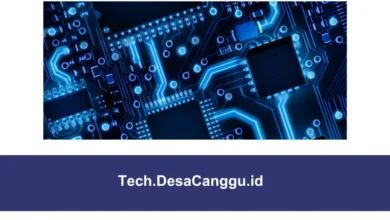Unraveling the Wonders of Blockchain Technology

Blockchain technology has emerged as one of the most revolutionary innovations of the digital age, promising to reshape industries and redefine the way we conduct transactions and exchange information. At its core, blockchain is a decentralized, distributed ledger system that records transactions across multiple computers in a way that ensures transparency, security, and immutability. In this article, we’ll delve into the intricacies of blockchain, exploring its origins, mechanics, applications, and potential impact on various sectors.
Origins and Fundamentals
The concept of blockchain was first introduced in 2008 by an anonymous entity known as Satoshi Nakamoto in a whitepaper titled “Bitcoin: A Peer-to-Peer Electronic Cash System.” Satoshi’s invention of blockchain was the foundational technology behind Bitcoin, the world’s first cryptocurrency. Blockchain operates on the principles of cryptography, decentralization, and consensus mechanisms to create a secure and transparent network for recording and verifying transactions.
Read more: Check duplicate bill online
How Blockchain Works
At its simplest, blockchain is a chain of blocks, each containing a list of transactions. These blocks are linked together in a chronological order, forming a continuous and immutable chain. When a new transaction occurs, it is grouped together with other transactions into a block. Before being added to the blockchain, the validity of each transaction is verified through a process called consensus, where network participants reach an agreement on the validity of the transaction.
One of the key features of blockchain is its decentralized nature. Instead of relying on a central authority to validate transactions, blockchain networks are maintained by a network of nodes, each possessing a copy of the entire blockchain. This decentralized architecture ensures that there is no single point of failure and reduces the risk of censorship or manipulation.
Applications of Blockchain
While Bitcoin was the first application of blockchain, the technology has since expanded beyond cryptocurrencies to revolutionize various industries. Some of the notable applications of blockchain include:
- Financial Services: Blockchain has the potential to streamline processes in the financial sector, including payments, remittances, and asset management. Smart contracts, self-executing contracts with the terms of the agreement directly written into code, enable automation and efficiency in financial transactions.
- Supply Chain Management: Blockchain can enhance transparency and traceability in supply chains by recording the movement of goods from the point of origin to the final destination. This can help prevent fraud, counterfeiting, and unauthorized changes to product information.
- Healthcare: Blockchain technology can improve the security and interoperability of health records, enabling patients to have greater control over their data while ensuring privacy and compliance with regulations such as HIPAA.
- Identity Management: Blockchain-based identity solutions offer a secure and decentralized way to manage digital identities, reducing the risk of identity theft and fraud. Users can control access to their personal information and selectively share it with trusted parties.
- Real Estate: Blockchain has the potential to streamline the process of buying, selling, and transferring property by digitizing title deeds and automating the execution of contracts. This can reduce the need for intermediaries and expedite transactions.
Challenges and Future Outlook
While blockchain holds immense promise, it is not without its challenges. Scalability, interoperability, and regulatory concerns are some of the key obstacles that need to be addressed for blockchain to realize its full potential. Moreover, the energy-intensive process of mining cryptocurrencies has raised concerns about the environmental impact of blockchain technology.
Read more: https://ptclbill.info/ptcl-duplicate-bill
Looking ahead, the future of blockchain appears promising, with ongoing research and development efforts focused on overcoming existing limitations and exploring new use cases. As blockchain continues to evolve, it has the potential to revolutionize industries, empower individuals, and foster innovation in ways we have yet to imagine.
In conclusion, blockchain technology represents a paradigm shift in how we perceive and interact with digital information. Its decentralized, transparent, and secure nature has the potential to transform a wide range of industries, from finance to healthcare to supply chain management. While challenges remain, the possibilities offered by blockchain are truly limitless, heralding a new era of innovation and disruption in the digital age



